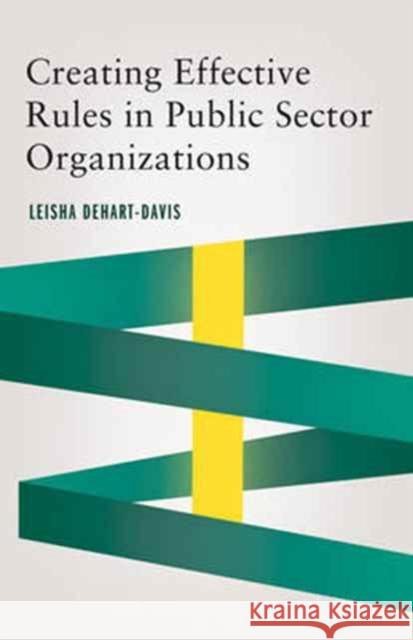Creating Effective Rules in Public Sector Organizations » książka
Creating Effective Rules in Public Sector Organizations
ISBN-13: 9781626164475 / Angielski / Miękka / 2017 / 189 str.
Creating Effective Rules in Public Sector Organizations
ISBN-13: 9781626164475 / Angielski / Miękka / 2017 / 189 str.
(netto: 130,12 VAT: 5%)
Najniższa cena z 30 dni: 134,67
ok. 30 dni roboczych.
Darmowa dostawa!
Rules in public sector organizations are both indispensable and disliked. Rules direct an array of critical tasks such as managing employees, controlling public finances, and structuring interactions with citizens. Yet scholars and practitioners alike tend to focus on the consequences of bad rules, such as inefficiency, rigidity, or unintended consequences. This focus on bad rules overlooks the need to craft the right rules. This book provides a comprehensive portrait of rules in public organizations, and it explains the characteristics of beneficial rules that help public organizations function effectively, what the author calls "green-tape." Drawing on a decade of original research and interdisciplinary scholarship, DeHart-Davis builds a framework of three perspectives. The organizational perspective, which sees rules as a tool for achieving managerial goals and organizational functions; the individual perspective, which examines how rule design and implementation impact employees; and the behavioral perspective, which explores human responses to the intersection of the first two perspectives. The author uses this framework to analyze a local-government case study of non-union employee grievance policy. The book concludes with summarizing key findings for practitioners as well as suggesting directions for future research.











